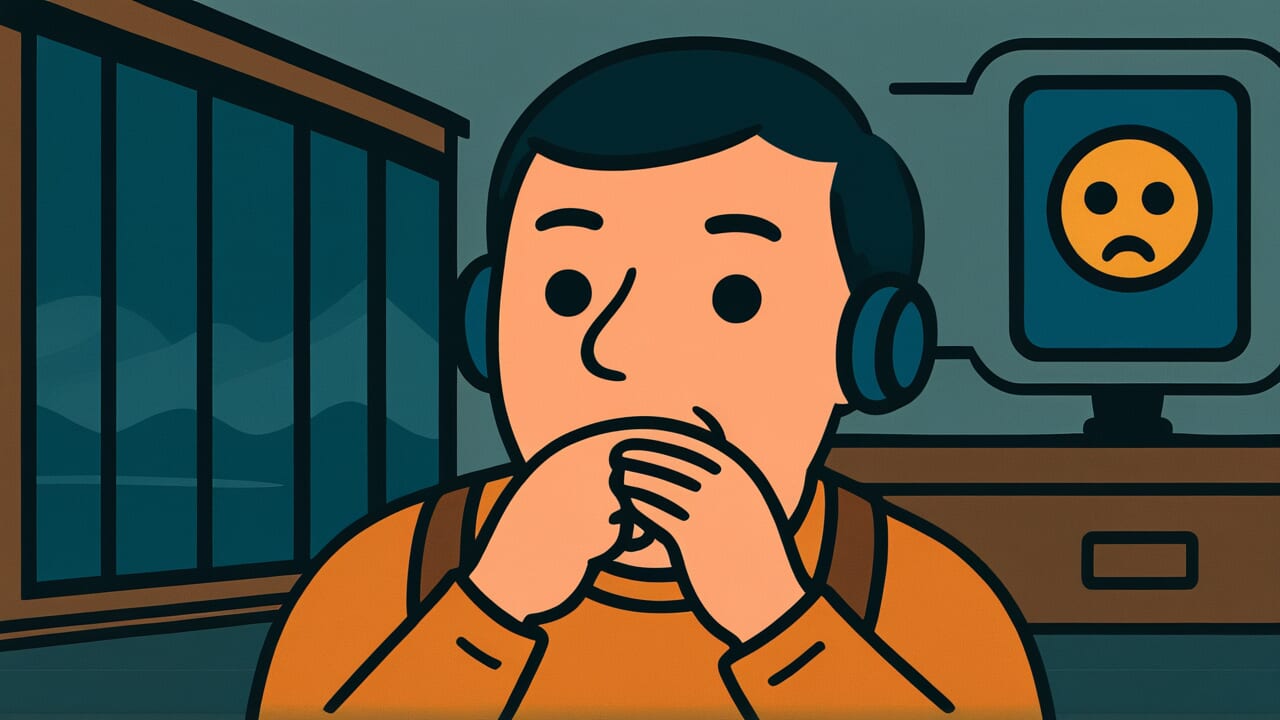How to Read “Keep your mouth closed, keep your eyes open”
Kuchi wa tojite oke, me wa akete oke
Meaning of “Keep your mouth closed, keep your eyes open”
This proverb teaches that you should avoid saying unnecessary things and carefully observe your surroundings instead.
In other words, it’s better to stay quiet and watch the situation carefully than to fail by speaking carelessly.
This attitude becomes especially important when you enter a new environment or find yourself in an unfamiliar situation.
If you pretend to know things and say unnecessary words, you risk losing trust or embarrassing yourself.
On the other hand, if you keep your eyes open and observe carefully, you’ll naturally understand the rules, atmosphere, and relationships in that place.
Even today, this teaching applies in situations like workplace training for new employees or attending a meeting for the first time.
It shows an attitude of speaking modestly while actively observing and learning from the situation, rather than being passive.
Origin and Etymology
The exact first appearance of this proverb in literature is difficult to confirm.
However, based on its structure, it’s believed to have originated as very practical life advice.
The expression combines two contrasting physical actions: “closing your mouth” and “opening your eyes.”
This is one of the most direct and easy-to-understand formats among traditional Japanese teachings.
In the world of Edo period merchants and craftsmen, apprentices and students were expected to first watch their masters’ techniques in silence.
In this apprenticeship system, the importance of using your eyes before your mouth was taught daily.
In samurai society too, speaking carelessly was considered something to avoid.
The ability to calmly assess situations was highly valued.
This idea connects with the Western saying “Silence is golden, speech is silver.”
However, Japanese culture particularly emphasizes the importance of observation.
This proverb condenses two teachings into one expression: avoiding mistakes through words while never neglecting to gather information through sight.
Though simple, it has been passed down for generations as words showing a fundamental attitude toward human relationships and social life.
Usage Examples
- When assigned to a new department, you should first observe the situation with the spirit of “Keep your mouth closed, keep your eyes open”
- In meetings, I learned a lot from watching veteran exchanges with the attitude of “Keep your mouth closed, keep your eyes open”
Universal Wisdom
The universal wisdom this proverb shows is that it recognizes two dangers humans face.
One is “the danger of talking too much,” and the other is “the danger of overlooking things.”
Humans have a strong desire to express their knowledge and opinions.
Especially in anxious situations, we want to confirm our existence by saying something.
However, if we follow this impulse and open our mouths carelessly, we expose our immaturity, create misunderstandings, or sometimes make irreversible mistakes.
Our ancestors deeply understood this human nature.
At the same time, humans tend to overlook the reality in front of them, trapped by their inner thoughts and existing knowledge.
We become absorbed in thinking inside our heads, and our ability to observe what’s actually happening weakens.
That’s why we need to consciously “keep our eyes open.”
By combining these two teachings, this proverb touches on the essence of human growth.
The truth is that real learning isn’t about asserting yourself, but humbly learning from reality.
Closing your mouth isn’t passive silence. It’s an active choice to open your eyes.
As long as humans are social beings, this wisdom will never fade.
When AI Hears This
When viewing humans as information systems, this proverb shows a surprisingly rational strategy.
In information theory, information you send out spreads into the environment and can’t be recovered.
In other words, words from your mouth cause “entropy increase.”
For example, research shows that when you tell a secret to one person, that information spreads to an average of 2.5 people.
This is because information has the property of spreading exponentially.
Once released, information is an irreversible process, like spilled water that can’t be put back.
On the other hand, information entering through your eyes is completely different.
What you see is processed in your brain, and you can choose whether to remember or forget it, and how to interpret it.
In other words, input information is reversible, with much room for your own control.
In Shannon’s information theory, communication efficiency depends on “how much you reduce useless signals and increase useful information.”
By closing your mouth, you prevent information leakage from yourself. By opening your eyes, you continue gathering information from the environment.
This is an extremely efficient information strategy that optimizes the signal-to-noise ratio.
Information has asymmetry based on direction. Output can’t be canceled, but input can be filtered.
Because this proverb understood this fundamental difference, it has survived for hundreds of years.
Lessons for Today
What this proverb teaches modern people is the value of “strategic silence,” which is especially necessary in the SNS era.
In modern society, anyone can easily express their opinions.
But precisely because of this, the ability to judge when to open your mouth and when to close it has become more important than ever.
When you join a new project, change jobs, or enter a new community, try consciously being “the listener” for the first few weeks.
Don’t just stay silent. Actively observe.
Who has influence? What unspoken rules exist? What gets valued, and what gets avoided?
This information isn’t something anyone will teach you. You must grasp it by seeing with your own eyes.
Then, the words you speak after sufficient observation will be accurate and persuasive.
This isn’t a passive attitude at all.
Rather, it’s an active preparation period for making truly valuable statements.
The courage to close your mouth and the will to keep your eyes open.
By having these two things, you can surely grow in any environment.



Comments